Rob Bignell's Blog, page 260
May 24, 2016
Four writing prompts: Experimentation
Good stories  center on the clashing of characters��� goals and motivations. Sometimes a character���s goals and motivations arise from the desire to try or learn something new. Here are four writing prompts for stories that center on experimentation.
center on the clashing of characters��� goals and motivations. Sometimes a character���s goals and motivations arise from the desire to try or learn something new. Here are four writing prompts for stories that center on experimentation.
Man vs. nature
What if when undergoing an experiment to cure some terminal disease, the treatment has an unintended consquence? How does this physically and psychologically affect our protagonist? What if he seeks some way to overcome the consequence because he deems it being as bad as having the original disease?
Man vs. man
A man discovers he is part of a grand experiment that is kept secret from him and society at large. What is the experiment? Why does the man not want to be part of it and plans to escape from and makes public the experiment? What if another man is sent to kill our main character before he can? How does our hero outwit this antagonist and survive?
Man vs. society
What if an organization wants our main character to conduct an experiment that he believes is unethical? What is the experiment and the possible gains to be had from it? How does our main character try to avoid running the experiment?
Man vs. himself
A person bored with his life decides to experiment. While at first exhilarating, the need for ever-riskier experimentation leads him on a deep, downward spiral. How does the main character decieve himself that the experimention is destroying his life? How does he find a way to reverse his course and bring excitement to his life without dangerous experimention, or will his life end tragically?
Professional Book Editor: Having your novel, short story or nonfiction manuscript proofread or edited before submitting it can prove invaluable. In an economic climate where you face heavy competition, your writing needs a second eye to give you the edge. I can provide that second eye.
<A HREF="http://ws-na.amazon-adsystem.com/widg... Widgets</A>
Related articles
 Three potential ways to end your story
Three potential ways to end your story How to create an interesting villain for your story
How to create an interesting villain for your story Use third - person limited for greater clarity
Use third - person limited for greater clarity Questions to ask yourself when plotting a story
Questions to ask yourself when plotting a story
May 23, 2016
Consider structuring story with ���plot inversion���
Several variations 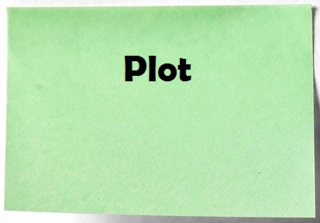 of a standard plot (inciting incident-rising action-climax-falling action-denouement) exist in storytelling. One you might use is called a plot inversion. This type of story generally tells readers the outcome of the plot before the action leading to it is presented.
of a standard plot (inciting incident-rising action-climax-falling action-denouement) exist in storytelling. One you might use is called a plot inversion. This type of story generally tells readers the outcome of the plot before the action leading to it is presented.
For example, a story might begin with a church confession from a serial killer after his last intended victim escaped. The killer knows he���s about to be captured and so seeks forgiveness, rendered to him by a priest. Such a story opener naturally would raise in the reader���s mind questions of how the young woman escaped and why the serial killer would think he was worthy of forgiveness, so the rest of the tale focuses on answering those questions.
Such a technique is particularly useful in whodunit mysteries, no matter the genre (for example, a murder mystery done in a typical science fiction setting), and in character examinations of psychopaths, a common theme of horror novels.
Usually in a story, the reader firsts learn what is at stake and then sees the action. For example, a standard plot structure would involve the woman being kidnapped with the reader uncertain if she will survive. Or it might be told from the serial killer���s viewpoint in which he kidnaps the woman to commit ���the perfect murder��� so that the reader wonders if this madman will succeed.
Arguably, a plot inversion is not quite as suspenseful as a standard plot because the reader knows how the story will end right from the start. Generally, unless the story is read as a puzzle to be solved (which is the case of most mysteries and detective stories) or an examination of insanity and those who suffer from it (which can lead to some pithy observations and metaphors for the flaws of ���sane��� society), a plot inversion runs the risk of being gimmicky.
Need an editor? Having your book, business document or academic paper proofread or edited before submitting it can prove invaluable. In an economic climate where you face heavy competition, your writing needs a second eye to give you the edge. I can provide that second eye.
Amazon.com Widgets
May 22, 2016
Five Great Quotations about Books
���Books always 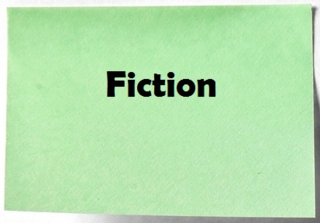 speak of other books, and every story tells a story that has already been told.��� - Umberto Eco
speak of other books, and every story tells a story that has already been told.��� - Umberto Eco
���Books are for nothing but to inspire.��� - Ralph Waldo Emerson
���It had been startling and disappointing to me to find out that story books had been written by people, that books were not natural wonders, coming up of themselves like grass.��� - Eudora Welty
���...books should be like a prime rib steak - good and thick.��� - E.A. Bucchianeri
���The sacred-souls of authors are displayed in the beauty of their books.��� - Lailah Gifty Akita
Professional Book Editor: Having your novel, short story or nonfiction manuscript proofread or edited before submitting it can prove invaluable. In an economic climate where you face heavy competition, your writing needs a second eye to give you the edge. Whether you come from a big city like Portland, Oregon, or a small town like Papa, Hawaii, I can provide that second eye.
<A HREF="http://ws-na.amazon-adsystem.com/widg... Widgets</A>
Related articles
 Five Great Quotations about Editing
Five Great Quotations about Editing Five Great Quotations about Biographies
Five Great Quotations about Biographies Five Great Quotations about Readers
Five Great Quotations about Readers Five Great Quotations about Storytelling
Five Great Quotations about Storytelling Writing Inspiration: Who are you?
Writing Inspiration: Who are you?
May 21, 2016
Do something special ��� write a book!
Did you 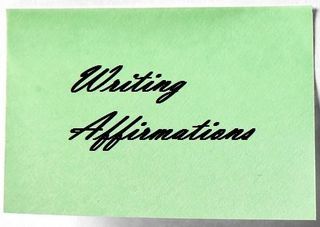 know that 81 percent of Americans feel that they have book in them, according to a recent survey published in The New York Times?
know that 81 percent of Americans feel that they have book in them, according to a recent survey published in The New York Times?
And how many of them actually write a book? If they all did, out of 320 million Americans, then 259,200,000 would. While sometimes the number of titles in your genre suggest that all 259.2 million people actually did, obviously that���s not the case.
Indeed, that���s why so many people are in awe when you say you���re a writing a book. You���re doing something so many of them wish they could. Yes, you know the latest paragraph in your book needs some major revising, but at least you���ve written a paragraph rather than just thought about it.
Now if you want to do something really noteworthy, actually finish that book. Only 3 out of every 100 people who start writing a book complete it, according to the blog Utterances of an Overcrowded Mind.
And if you really want to do something absolutely rare, actually publish the book you���ve finished. Only 1 in 5 people who complete their writing go on to publish it. In short, for every 1000 who start a book, only 30 will complete it���and of that 30, only six will publish.
Be unique and stand out by doing something almost everyone wishes they could do but don���t ��� finish writing and then publish your book!
Professional Book Editor: Having your novel, short story or nonfiction manuscript proofread or edited before submitting it can prove invaluable. In an economic climate where you face heavy competition, your writing needs a second eye to give you the edge. I can provide that second eye.
<A HREF="http://ws-na.amazon-adsystem.com/widg... Widgets</A>
Related articles
 Writing inspiration: Model a story
Writing inspiration: Model a story How many words is a novella?
How many words is a novella? Add tagline to boost interest in your book
Add tagline to boost interest in your book Editing client's book finalist for national award
Editing client's book finalist for national award
May 20, 2016
Yes, you can create your own media kit!
All too often,  people hoping to make an easy buck try to convince self-published authors that they need expensive marketing services to get the attention of traditional media ��� newspapers, magazines, television and radio. The truth is that with a little know-how of what to write to whom and with a few hours of your time, you can be far more successful in obtaining the media���s attention than almost every online marketing company.
people hoping to make an easy buck try to convince self-published authors that they need expensive marketing services to get the attention of traditional media ��� newspapers, magazines, television and radio. The truth is that with a little know-how of what to write to whom and with a few hours of your time, you can be far more successful in obtaining the media���s attention than almost every online marketing company.
Learning how to create and send a press kit will pay dividends. After all, publicity in traditional media outlets almost always results in book sales. It also creates an awareness about your book and you as an author than can lead to other book selling opportunities, such as guest speaking, readings and signings. Such publicity also gives you credibility; from other people���s perspectives, while you may be self-published, your book was good enough to be taken seriously by the media, elevating your stature.
I speak from experience about the power of a media kit. For more than 20 years, I worked at newspapers and magazines in posts from cub reporter to executive editor of award-winning publications. Once I retired from corporate media and went to writing books full-time, I���ve created press kits for every one of my books, landing me several interviews at publications in major metro areas as well as got my press release published as written. In this book, I���ll share the ���secrets��� of how to prepare a media kit for the press that also will land you quality publicity.
Still not convinced that you can put together your own successful press kit? Then consider the following three facts.
It���s easy to do
You already know how to write, after all. You know how to search for information online and how to send emails with attachments. Those really are the only skills required. All you really need is an understanding of the media kit���s structure and an understanding of what the media is looking for.
The media wants to hear about your book
A number of media outlets are looking for story ideas that are local, that are human interest-oriented, and that focus on specific topics especially if seasonally-oriented. The fact that you���ve written and published a book often fits that bill.
It���s only effective when you do it
Marketing companies will ask you to spend hundreds of dollars on their services, but their shotgun approach rarely ever works. It may have worked decades ago when newspaper and magazine circulations were high so text from anywhere was needed to fill space or when there were only three or four television channels that required someone with an ���in��� to get your some coverage. Today, however, press releases must be tailored to each news outlet���s particular coverage area and needs.
This blog includes several easy-to-follow articles about how to create your own media kit. Among them:
��� Create media kit to promote your book
��� How to write a press release for your book
��� Where to send media kit promoting your book
Professional Book Editor: Having your novel, short story or nonfiction manuscript proofread or edited before submitting it can prove invaluable. In an economic climate where you face heavy competition, your writing needs a second eye to give you the edge. I can provide that second eye.
<A HREF="http://ws-na.amazon-adsystem.com/widg... Widgets</A>
Related articles
 Writing inspiration: Model a story
Writing inspiration: Model a story Media kit useful for promoting your book
Media kit useful for promoting your book What are 'book specs' on a press release?
What are 'book specs' on a press release?
May 19, 2016
Six great formulas for writing a nonfiction title
To successfully  market a nonfiction book, you���ll want a powerful title that grabs the reader. Unlike fiction, however, the nonfiction book not only has to catch the readers��� attention but give the reader an instant sense of what the book is about. As you compete with hundreds and sometimes even thousands of books writing about your topic, such a title will make your book stand out, which in turn means readers are more likely to click on it at Amazon.com or to pull it off a shelf at a bookstore.
market a nonfiction book, you���ll want a powerful title that grabs the reader. Unlike fiction, however, the nonfiction book not only has to catch the readers��� attention but give the reader an instant sense of what the book is about. As you compete with hundreds and sometimes even thousands of books writing about your topic, such a title will make your book stand out, which in turn means readers are more likely to click on it at Amazon.com or to pull it off a shelf at a bookstore.
While there are no shortage of ways to achieve that, a few common formulas stand out.
(Keyword): (subhead elaborates)
The keyword is a single word or phrase that describes the book���s topic; a reader might look for your book by typing it into a search engine. The subhead tells more about the keyword/topic by narrowing its focus in a way that appeals to readers (usually by appealing to a need they are seeking to meet). Some examples of this title formula include:
��� Grit: The Power of Passion and Perseverance
��� Heart Intelligence: Connecting with the Intuitive Guidance of the Heart
��� The Coaching Habit: Say Less, Ask More & Change the Way You Lead Forever
(Number) (Topic)
Numbers often are effective in attracting attention; readers either want small numbers so that an seemingly overwhelming skill or subject feels manageable or they want a large number to they feel like they���re getting a deal. The topic actually tells what the book is about. Just how effective are numbers? Take out the numbers from the following examples of this formula and see how they then feel flat:
��� The 7 Habits of Highly Effective People: Powerful Lessons in Personal Change
��� 501 Ways to Market Your Book
��� 1825 Easy Crock Pot Recipes
How to���(result)
Often readers search for a nonfiction book to solve some problem they may have. This title directly tells them that reading it will solve their problem by giving the result of following its advice. It often mimics questions that readers type into a search engine. Examples include:
��� How to Win Friends and Influence People
��� How to Make Money Blogging
��� How to Draw Comic Book Heroes
A variations of this is How to���(result) in (time). The approach shows how a seemingly difficult task can be mastered in very little time if you follow the technique described in the book. Titles using this strategy include:
��� Lean in 15: 15-Minute Meals and Workouts to Keep You Lean and Healthy
��� 7 Minutes a Day to a Self-Published Book
��� Artisan Bread in Five Minutes a Day
(Topic) Secrets
Some skills or fields seem so baffling to readers that they believe if they just knew its ���secrets,��� then they, too, could master it. This formula plays off that psychology, sometimes incorporating the added grabbing power of a number. To wit:
��� Secrets to Ebook Publishing Success
��� Top 101 Incredible Minecraft Secrets You Need To Know
��� Blogging for Cash: Online Income Secrets Revealed
The Art of (result)
This approach also appeals to readers seeking to solve a problem. ���Art��� implies a more humanistic and craft-oriented than an empirical, step-by-step approach to addressing the issue. For example:
��� The Art of Mental Training ��� A Guide to Performance Excellence
��� The Art of Being Mindful
��� The Art of Investing: Trading Stocks
The Science of (result)
Though seemingly a variation of ���The Art of������ this approach appeals to people who prefer techniquess based on observation and verification. The books usually focus on a more ���practical��� or ���grounded��� topic, or at least uses that strategy in addressing the subject. Such titles include:
��� The Science of Getting Rich
��� The Science of Parenting
��� The Science of Being Great
Professional Book Editor: Having your novel, short story or nonfiction manuscript proofread or edited before submitting it can prove invaluable. In an economic climate where you face heavy competition, your writing needs a second eye to give you the edge. I can provide that second eye.
<A HREF="http://ws-na.amazon-adsystem.com/widg... Widgets</A>
Related articles
 Sales advantages of writing nonfiction books
Sales advantages of writing nonfiction books Thinking up a title that sells your nonfiction book
Thinking up a title that sells your nonfiction book
May 18, 2016
Line of confusion: -ly words and hyphens
Among the 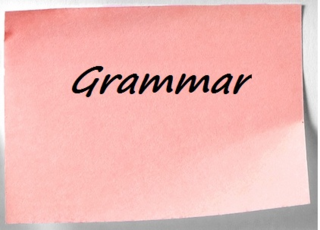 many confused punctuation rules is whether or not to use a hyphen with a word ending in ly.
many confused punctuation rules is whether or not to use a hyphen with a word ending in ly.
The basic rule is that adverbs ending in ly are not hyphenated. So, you would write finely tuned guitar not finely-tuned guitar, because finely is an adverb modifying how the guitar is tuned.
Generally, words ending in ly are adverbs, so this rule is almost universal.
The few words ending in ly that are not adverbs, such as family (which is a noun), requires a hyphen, however. So, you would write family-owned business not family owned business.
Professional Book Editor: Having your novel, short story or nonfiction manuscript proofread or edited before submitting it can prove invaluable. In an economic climate where you face heavy competition, your writing needs a second eye to give you the edge. I can provide that second eye.
&amp;amp;amp;amp;lt;A HREF="http://ws-na.amazon-adsystem.com/widg... Widgets&amp;amp;amp;amp;lt;/A&amp;amp;amp;amp;gt;
Related articles
 Word in transition: Co-worker vs. coworker
Word in transition: Co-worker vs. coworker Stretching your knowledge: warm-up vs warm up
Stretching your knowledge: warm-up vs warm up No childish matter: middle age vs. middle-age
No childish matter: middle age vs. middle-age One or three? Nonetheless vs. none the less
One or three? Nonetheless vs. none the less
May 17, 2016
Four writing prompts: Betrayal
Good stories 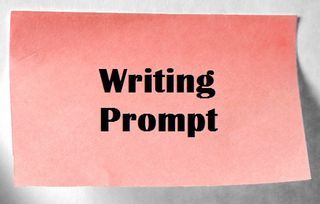 center on the clashing of characters��� goals and motivations. Sometimes a character���s goals and motivations arise from or are affected by being tricked or deceived. Here are four writing prompts for stories that center on betrayal.
center on the clashing of characters��� goals and motivations. Sometimes a character���s goals and motivations arise from or are affected by being tricked or deceived. Here are four writing prompts for stories that center on betrayal.
Man vs. nature
A man who should have been hailed as a hero is betrayed and left to die in an unforgiving environment. How does he survive the obstacles nature throws at him? As overcoming these hurdles, what skills or knowledge does he gain that allows him to either thrive in there or upon reaching his homeland to return his status to that of a hero?
Man vs. man
What if our protagonist���s best friend betrays him? How does our main character cope with this realization? How does he set things straight, such as revenge or redoubling his efforts to achieve his goals despite the betrayal?
Man vs. society
Our main character discovers that several people in her organization (business, political office, etc.) who are in his employ have betrayed him. Firing those people isn���t enough, though, for they���ve tied up the organization in deals and secrets that will cause his fall and financial ruin. How does he unravel the truth behind these betrayals and right her ship before it sinks?
Man vs. himself
To achieve an important objective that will save a number of people, the main character must betray those who are closest to him ��� perhaps his family, perhaps an organization he belongs to. What inner struggles does the character go through to decide if he should commit this betrayal? Do the needs of the many truly outweigh the needs of the few ��� even if those few mean more to the main character than anyone else?
Professional Book Editor: Having your novel, short story or nonfiction manuscript proofread or edited before submitting it can prove invaluable. In an economic climate where you face heavy competition, your writing needs a second eye to give you the edge. I can provide that second eye.
&amp;amp;amp;amp;amp;lt;A HREF="http://ws-na.amazon-adsystem.com/widg... Widgets&amp;amp;amp;amp;amp;lt;/A&amp;amp;amp;amp;amp;gt;
Related articles
 Writing Prompt: Take your story forward
Writing Prompt: Take your story forward Three potential ways to end your story
Three potential ways to end your story How to create an interesting villain for your story
How to create an interesting villain for your story Questions to ask yourself when plotting a story
Questions to ask yourself when plotting a story Zip two disparate stories into one tale
Zip two disparate stories into one tale
May 16, 2016
Employ lock-in to ensure you have a story
To pump 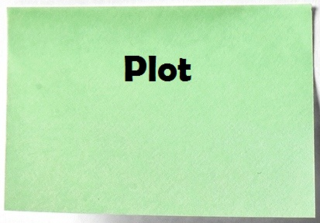 up the suspense in your story ��� nay, to even have a story ��� you will want to ensure your character experiences a ���lock in.��� A lock-in occurs when a character cannot escape a situation because the stakes are high and doing nothing carries such dire consequences that trying to resolve the problem is the best option.
up the suspense in your story ��� nay, to even have a story ��� you will want to ensure your character experiences a ���lock in.��� A lock-in occurs when a character cannot escape a situation because the stakes are high and doing nothing carries such dire consequences that trying to resolve the problem is the best option.
Suppose, for example, that our protagonist is an astronaut whose Earth-orbiting spacecraft suffers such serious damage that it is losing power. There is no escape from this situation, as she cannot simply leave the spacecraft. Doing nothing means she soon will freeze to death in space as there soon will be no heat. She must attempt to solve her problem, even though doing so will be dangerous and potentially leave her dead. So she dons a spacesuit and makes an EVA ��� something she has only done in training on Earth ��� to rig a solar panel that will allow the spacecraft to have power until a rescue can be mounted.
If there is no lock-in, you may have no story at all, just a series of anecdotes. Suppose in the above example that our astronaut���s spacecraft suffers damage that only strands her in space. So long as she has food, water and power, no big deal. She just needs to wait it out until a rescue arrives. The stakes simply aren���t high enough for our astronaut, and there���s no compelling reason for her to do anything to resolve her problem (Though that can be fixed by changing the lock-in ��� if she were orbiting a distant planet, in which a rescue at best is several years away and her fellow shipmates died when the damage occurred, she must do something or risks going mad from being alone for potentially a decade.).
A lock-in need not be a matter of life and death, of course. But the character���s quality of life must in some way be deeply threatened that action must be taken toward resolving the problem.
Professional Book Editor: Having your novel, short story or nonfiction manuscript proofread or edited before submitting it can prove invaluable. In an economic climate where you face heavy competition, your writing needs a second eye to give you the edge. I can provide that second eye.
<A HREF="http://ws-na.amazon-adsystem.com/widg... Widgets</A>
Related articles
 Writing Inspiration: Others dream of writing a book - I am living that dream!
Writing Inspiration: Others dream of writing a book - I am living that dream! Questions to ask yourself when plotting a story
Questions to ask yourself when plotting a story Write winning query letter to editors, agents
Write winning query letter to editors, agents
May 15, 2016
Five Great Quotations about bestsellers
���A best 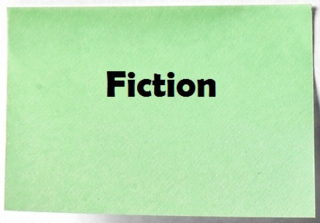 seller was a book which somehow sold well simply because it was selling well.��� - S. Boorstein
seller was a book which somehow sold well simply because it was selling well.��� - S. Boorstein
���Only a person with a Best Seller mind can write Best Sellers.��� - Aldous Huxley
���It took me fifteen years to discover I had no talent for writing, but I couldn���t give it up because by that time I was too famous.��� - Robert Benchley
���Writing is turning one���s worst moments into money.��� - J. P. Donleavy
���Being a bestseller doesnt mean they wrote a great book. Just means they knew a lot of people who would buy it.��� - David A. Santos
Professional Book Editor: Having your novel, short story or nonfiction manuscript proofread or edited before submitting it can prove invaluable. In an economic climate where you face heavy competition, your writing needs a second eye to give you the edge. Whether you come from a big city like Burlington, Vermont, or a small town like Humptulips, Washington, I can provide that second eye.
&amp;amp;amp;amp;amp;lt;A HREF="http://ws-na.amazon-adsystem.com/widg... Widgets&amp;amp;amp;amp;amp;lt;/A&amp;amp;amp;amp;amp;gt;
Related articles
 Five Great Quotations about Story Inspirations
Five Great Quotations about Story Inspirations Add tagline to boost interest in your book
Add tagline to boost interest in your book Make tables readable in your self-published book
Make tables readable in your self-published book Editing client publishes second crime novel
Editing client publishes second crime novel



